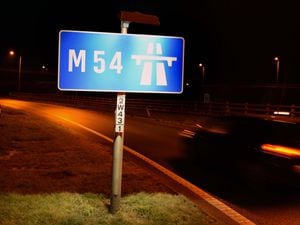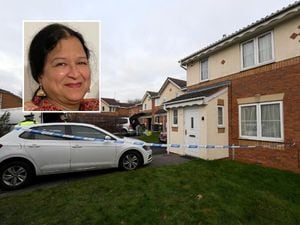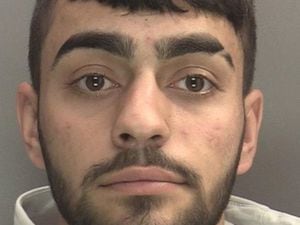Treating misogyny as a hate crime 'would help police to build up trust with women'
Treating misogyny as a hate crime would prove the issue is being taken "seriously" and would help police build trust with women, a victim's commissioner has said.

Nicky Brennan, who holds the role for the West Midlands, said the move would help to change the culture within policing – and enable perpetrators to be held to account.
It comes as the policing of crime against women comes under scrutiny, after the brutal murder of Sarah Everard by serving Met Police officer Wayne Couzens in March.
Prime Minister Boris Johnson appeared to reject the idea of creating a specific offence of misogyny on Tuesday – a stance later backed by Justice Secretary Dominic Raab.
Ms Brennan, the West Midlands Victims' Commissioner, said: "Recording misogyny as a hate crime would help women have more trust in the police as well as giving the police the ability to get to the root causes of violence against women and girls.
"We need to challenge misogyny wherever it arises and the police need to show that they take it seriously as well.
"Making misogyny a hate crime would allow police forces to much better collect information around the scale of the problem, as well as changing the culture within policing and enable perpetrators to be held to account for their actions through the Criminal Justice System.
"The Prime Minister should be leading the way in the fight against misogyny and hate against women and I’d urge him to rethink this to protect women and help challenge attitudes which pose a danger to women."
But Justice Secretary Dominic Raab has rejected calls for misogyny to be made a hate crime and defended the Government's decision to establish a non-statutory inquiry into the Sarah Everard case.
The Deputy Prime Minister suggested that dealing with hatred towards women is an issue of enforcing existing laws rather than creating new offences, adding that criminalising "insults with a sexist basis" would not deal with the wider problems.
Mr Raab added that "criminalising insulting language – even if it's misogynistic - does not deal with the intimidation, the violence and the much higher level of offence and damage and harm that we really ought to be laser-like focused in on."
It comes after Home Secretary Priti Patel announced an independent inquiry into Ms Everard's case which will be made up of two parts, the first examining Couzens' previous behaviour and whether warning signs were missed during his time in the police.
The second will look at any specific problems raised by the first part of the inquiry, which could include wider issues across policing - such as vetting practices, professional standards and discipline, and workplace behaviour.
Couzens was a serving Metropolitan Police officer at the time he kidnapped, raped and murdered the 33-year-old marketing executive in March. He had been linked to a flashing incident in 2015 and two others just days before he killed Ms Everard.





